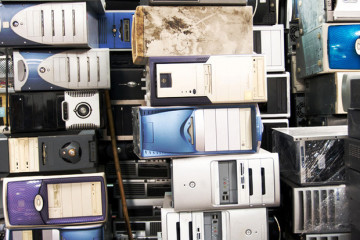 While many in the channel are trying to get out of low-margin hardware sales, a new report shows that there is still money to be made from PCs.
While many in the channel are trying to get out of low-margin hardware sales, a new report shows that there is still money to be made from PCs.
Spiceworks’ has penned a report with the catchy title: “Future of the PC: Top computer brands adoption trends in the workplace” which shows that despite the popularity of smartphones and tablets, employees still use laptops and desktops as their primary work devices. Organisations aren’t planning to shift investments away from traditional PCs in the foreseeable future.
Peter Tsai, senior technology analyst at Spiceworks, said although desktop PC growth is expected to stall a bit, they’re still the primary computing device of choice in many businesses.
Among the organisations surveyed in the US, Canada and the UK, 60 percent of employees currently use desktops as their primary work device, and laptops are favored by 27 percent.
In terms of future business investments, desktop investments are expected to be relatively flat in the next 12 months, but 43 percent of businesses surveyed said they expect to increase their laptop investments. Mobile devices, such as tablets (25 percent), smartphones (16 percent) and 2-in-1s (18 percent) are expected to see about half the growth of laptops.
“Growth in laptop sales presents a strong and viable opportunity for the channel. Forty-three percent of businesses are planning to increase their investments in laptops, which is nearly double the percent of organisations that intend to spend more on tablets or smartphones,” Tsai says.
“So while there is plenty of hype around mobile devices, both desktops or laptops will continue to be omnipresent in the workplace for the foreseeable future, and it’s an opportunity the channel should not ignore.”
As such, a mobile-dominated workplace is “at least three to five years off”, Tsai said.
The research said that 25 percent of companies plan to increase their investments in Dell PCs within the next 12 months, while 17 percent and 13 percent plan to increase spending with HP Inc. and Lenovo, respectively.
Among other PC vendors, 15 percent of those surveyed plan to increase their investments in Microsoft PCs, while eight percent plan to spend more on Apple laptops and desktops.
Respondents believe Dell, HP and Lenovo produce the most reliable devices – followed by performance, security and cost. Other factors, such as manageability, user-friendliness and ease of repair are slightly less important, and innovative features and style ranked the lowest as contributing factors.
 Spiceworks has previewed a new service that matchmakes IT service providers with customers.
Spiceworks has previewed a new service that matchmakes IT service providers with customers.






